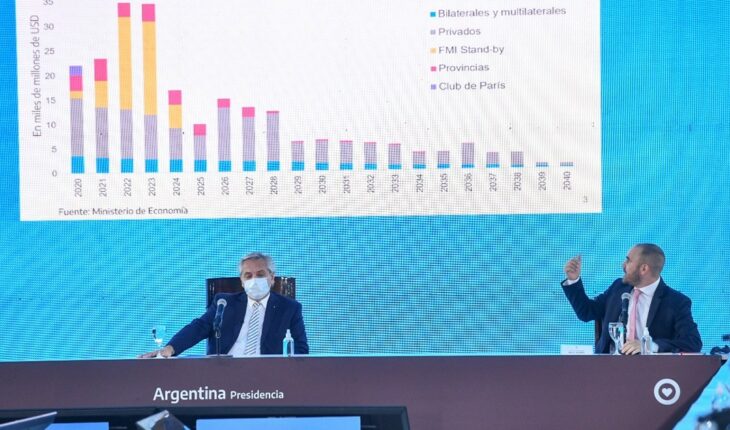The national government is advancing in negotiations to seal an agreement with the IMF to refinance the debt of 44 billion dollars contracted in 2018 by the administration of Cambiemos. In this framework, the Executive works confident that it will achieve the necessary votes in Congress to approve the agreement and defines whether the project will enter through the Chamber of Deputies or Senators. In the lower house, the understanding provoked a political crisis – which exceeds the Chamber – that erupted after the resignation of Máximo Kirchner to the presidency of the ruling bloc. The legislator announced his resignation with a letter in which he criticized President Alberto Fernández and his Economy Minister, Martín Guzmán, for the result of negotiations with the international credit organization. In the upper house, meanwhile, the future is uncertain. It is that the vice president of the Nation, and head of the Senate, Cristina Fernández de Kirchner, has not yet made public her position regarding the agreement. In the midst of this secrecy, a group of pro-government legislators could form their own bloc, at odds with the leadership of the vice president. These are Senators Edgardo Kueider (Entre Ríos), Camau Espínola (Corrientes), Guillermo Snopek (Jujuy) and Sergio Leavy (Salta). They question the lack of internal discussion within the ruling front and the position of the most radicalized sectors, which reject the agreement with the Fund.” The cost of not paying the IMF means defaulting and that will have a greater impact from a social point of view; Maximo Kirchner’s gesture generated fear in the markets and put tension again on the dollar,” Kueider told Mitre. Imagine a default. That will mean a devaluation, that the peso is worth less and that the salary is worth less, I am going to put in the balance the millions of Argentines who are going to suffer that crisis, “said the senator. According to reports from Together for Change, the opposition coalition would not obstruct the treatment of the project in either of the two Chambers. In fact, some have already advanced their support for the agreement. However, this last point still generates some divergences within the opposition front. The President is expected to announce on March 1, at the Opening of Legislative Sessions, the elevation to Congress. Tied to the approval of the IMF board, the Executive expects that the agreement will be treated in the first days of March and that it will be approved before the 22nd of next month. On that day, the Government must pay the Fund a maturity of 2,900 million dollars, a sum that, today, the Government would not be in a position to face.
Agreement with the IMF: the Government defines whether the project enters through Deputies or Senators
February 14, 2022 |





